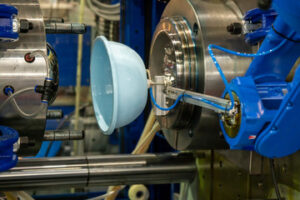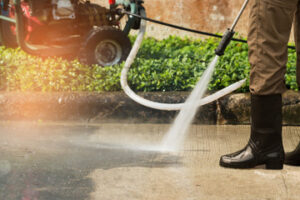Making your own plastic mold is a fun and inexpensive way to make custom-made parts. You can also use it to prototype your product design.

The best part of DIY injection molding is that it’s easy to do. You can use a variety of materials to make your mold. Read on How To Make Plastic Mold Florida for more information.
It’s important to test your mold before beginning full production. Testing will help you catch any problems that might be costly to fix later.
Plastic molds are used to make many types of products, including utensils, small parts for appliances, and even large machinery. To ensure that the molds produce high-quality parts, they must be designed carefully. In addition, the molds must be properly finished and cleaned to prevent defects in the final product.
When designing a plastic mold, the designer must consider several factors, including wall thickness and cooling requirements. Thicker sections take longer to cool, which can cause warping and twisting. To avoid this, the walls should be designed with a smooth transition from thick to thin sections. The draft angles on the part must be appropriate as well, since they will determine how easily the cooled plastic can be ejected from the mold.
Another important consideration is the location and size of the gate, which is where molten plastic enters the mold cavity. The designer must also ensure that the part has enough clearance for ejection and proper venting. If the design requires multiple colors or materials, it is important to consider how these will be molded into the plastic part and how this will affect cycle time and quality.
In addition to these considerations, the plastic mold designer must ensure that the mold can be cooled and heated properly. This is critical to the molding process and can help reduce cycle times, reduce warping, and prevent defects. The plastic must be able to cool slowly, so that it is solid when it is ejected from the mold. The design should also allow for sufficient venting to prevent air traps, which can cause defects in the finished product.
Finally, the design should include features to prevent undercuts that can interfere with ejection and lead to poor quality parts. Typically, undercuts are corrected by adding cores or sliding side-actions, which must be designed to slide in as the mold closes and out as it opens. If these are not possible, the designer can try to compensate for undercuts by using bosses or inserts.
Once the design is complete, it must be analyzed for manufacturability (DFM). Fictiv offers free DFM analysis on all quotes and can provide feedback for any unforeseen issues that might arise. This can help reduce production costs and improve part quality.
Materials
The materials used to make plastic molds depend on the design and size of the part being molded. Choosing the right materials for your project can be challenging, as each material has its own set of pros and cons. The material you choose will affect the manufacturing process, the durability of the mold, and its cost. The type of plastic molding process you use also depends on the intended production volume and desired final product.
Injection molding is an ideal method for mass-producing plastic parts because it can be used to create complex shapes and large quantities of the same part. However, it is important to understand the limitations of this process before you begin working with it. The mold-making process requires meticulous planning, precision, and knowledge of the equipment and materials needed to produce high-quality plastic parts.
Before the mold-making process begins, it is important to sketch and plan the mold design. This step includes considerations such as the parting line, draft angles, and ejector pins. It is also important to consider the effects of shrinkage on the design. This will help ensure that the resulting plastic part is the correct size.
Once the mold is complete, it is heat-treated to improve its strength and durability. This process can be done by using a variety of techniques, including injection and extrusion. It is also important to polish the mold surfaces to prevent defects.
If you are making a one-time-use mold, it is important to apply a release agent to the master item before covering it with the molding putty. This will make it easier to remove the master item from the mold after the cured putty has hardened. It is also important to protect the mold against scratches, which can occur during handling or demolding.
Once the molds have been fabricated, they undergo inspection and testing to ensure that they meet the required quality standards. This process may include dimensional measurements, surface finish inspection, and assembly check. In addition, the molds must be properly maintained and cleaned to ensure that they continue to produce high-quality plastic parts.
Assembly
If you want to make your own plastic parts, it’s important to follow the correct steps. This will ensure that your finished product is high-quality and works well. To do this, you’ll need to design the part carefully with precision and choose the right material. You’ll also need to select the right molding process, such as injection molding, for your project.
Before you begin the mold-making process, first prepare your master item by wiping it down and washing it. Make sure that the item is free of any grease or grime, as these will prevent the silicone from bonding with it. You’ll also need to coat the item with a layer of mold release agent. This will ensure that the molded plastic doesn’t stick to the mold.
Then, place the master item in a heat safe box and pour melted reusable molding material over it. After the reusable molding material is fully cooled, carefully remove the master item from the silicon and allow it to cure. When the reusable molding material is fully cured, you’re ready to create your mold.
A successful plastic molding process relies on a precise design. This is where CAD (Computer-Aided Design) software comes in handy, as it can help you visualize and make changes to your prototype. It can also help you save time and money by ensuring that your molded plastic meets all the necessary specifications.
When designing your molded plastic part, it’s essential to pay attention to the details of the item’s shape and size. This will ensure that the resulting plastic part has the desired properties and that it fits well on the existing item. For example, it’s a good idea to use smooth transitions and rounded corners, instead of sharp ones, as these limit stress concentrations. This will also minimize differences in shrinkage when the molded plastic cools.
Injection molding is a fast and efficient way to produce hard plastic parts. The tool that it uses, known as an injection mold, consists of two halves. Molten plastic is injected into the cavity between the two halves, and when it’s cooled, the mold opens, and the molded plastic is ejected. The injection molding process can be repeated tens, hundreds, or even thousands of times.
Testing
Once the mold has been designed and built, it needs to be tested to make sure it works correctly. This testing process usually involves producing a few sample parts to check for quality and function. In addition to making sure the ejector pin can reset and that the injection point or gate type is working properly, it’s also important to look at other factors like whether the runner geometry has welded lines, air gaps, or jetting issues. Using simulation software to analyze these factors can help ensure the quality of the finished product.
After the mold has been tested, it should be cleaned before starting production. This is essential for extending the life of the mold and improving part performance. Using a proper cleaning agent can help prevent the plastic from sticking to the surface of the mold, reducing the chance of damage during production. After cleaning, the mold should be dried thoroughly. This is especially important if the plastic has a color requirement, as it will help prevent the colors from bleeding or streaking.
Another important step is to evaluate the mold after each run. This helps to avoid unnecessary costs and time spent on modifying the mold. During this evaluation, it’s important to consider how much the size of the final product may change and whether the mold is sized appropriately. This information can help to ensure that the machine process parameters are set correctly, avoiding costly errors.
When it comes to maintaining your mold, it’s important to keep in mind that it’s a big investment and should be treated with care. You should use a release agent to prevent the plastic from sticking to the mold, and you should regularly clean it to avoid contamination. In addition, it’s important to take the time to polish and finish the mold properly, as this will reduce the risk of damage during production. By taking these steps, you can be sure that your plastic parts will be of the highest quality and last longer. Keeping your plastic mold in good condition can help you save money and time, and it will ensure that your products meet all of the necessary requirements.

